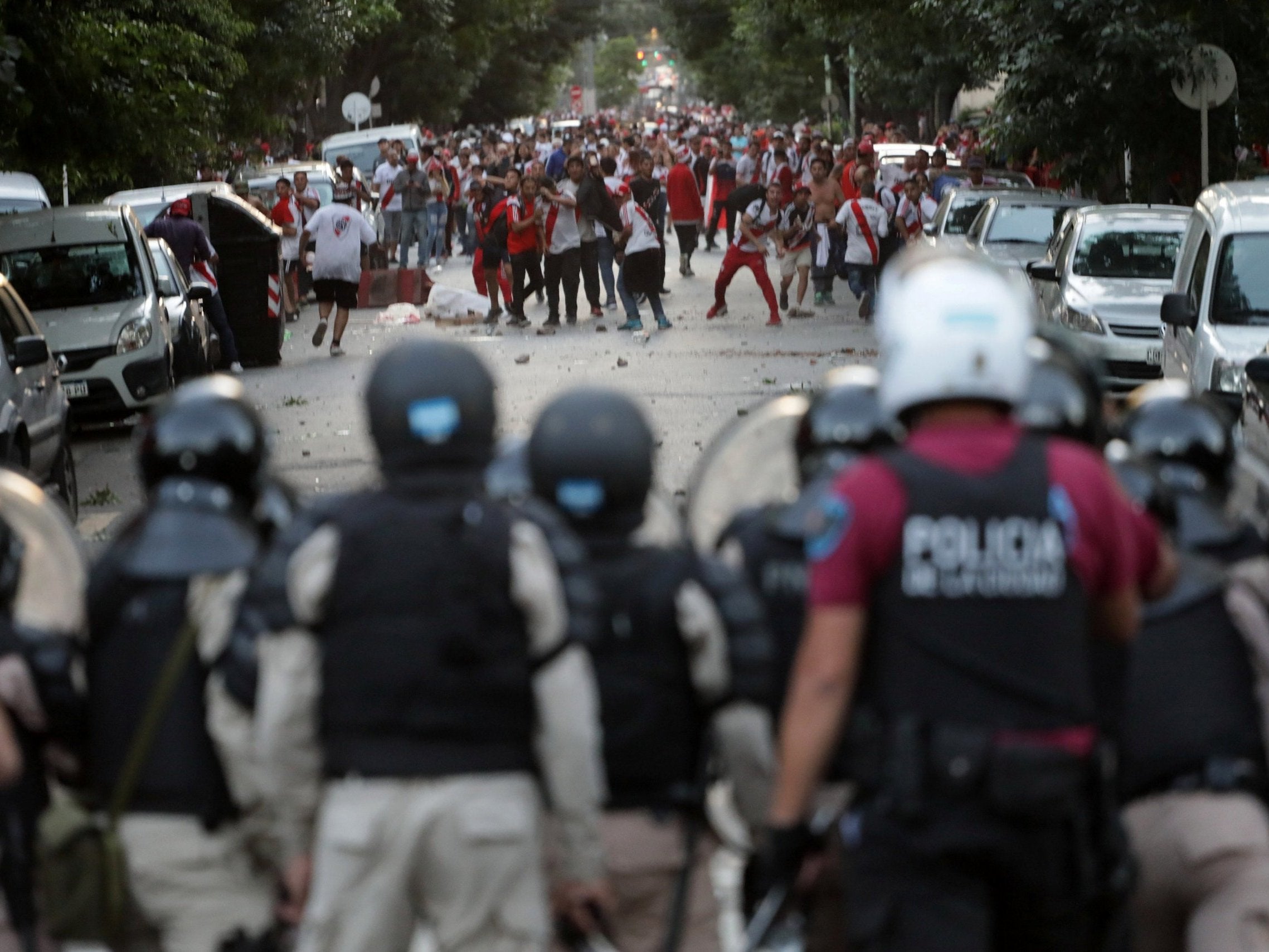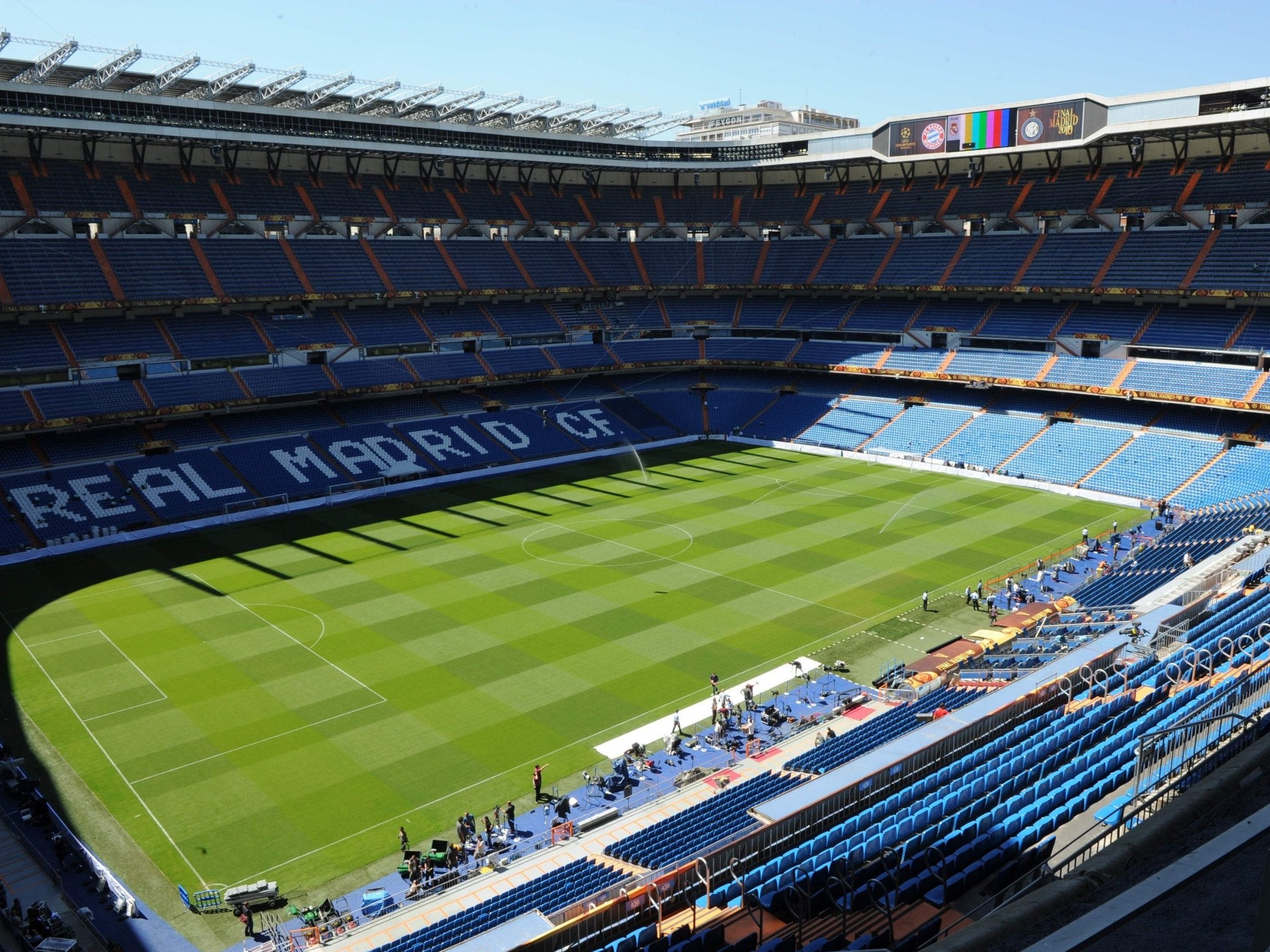A Copa Libertadores final in Madrid sets a worrying precedent for football - but a financially enticing one for those who run the game
This will be the first major final of a continental competition played outside its federation, and if you can hear that sound it is the floodgates opening for cash-hungry executives determined to pimp out the game to the highest bidder

Your support helps us to tell the story
From reproductive rights to climate change to Big Tech, The Independent is on the ground when the story is developing. Whether it's investigating the financials of Elon Musk's pro-Trump PAC or producing our latest documentary, 'The A Word', which shines a light on the American women fighting for reproductive rights, we know how important it is to parse out the facts from the messaging.
At such a critical moment in US history, we need reporters on the ground. Your donation allows us to keep sending journalists to speak to both sides of the story.
The Independent is trusted by Americans across the entire political spectrum. And unlike many other quality news outlets, we choose not to lock Americans out of our reporting and analysis with paywalls. We believe quality journalism should be available to everyone, paid for by those who can afford it.
Your support makes all the difference.On the day before the farcically postponed Copa Libertadores final second leg in Buenos Aires, Conmebol president Alejandro Dominguez was talking about the challenge of getting the competition back on the same level as the Champions League, and made a stark admission: that they were about two decades behind Uefa.
“Something happened in this time, and that is that Uefa worked right, and we did not work… it is not that we will shorten the gap, it is that we want to keep track and not let it get bigger.”
And yet, with the announcement that the second leg of this Superclasico is set to take place in Madrid on Sunday 9 December, the South American federation may well have got ahead of the curve. They may well have signalled the future.
Far from a secondary competition, or a “hipster derby”, this unique Superclasico may well prove historic for even more reasons. It may well prove one of the most significant fixtures in the evolution of the sport as a business, because it’s impossible not to now see this as a road-test for the much-propagated idea of taking the biggest fixtures around the world - to where the money is greatest.

It already sets a precedent that many power-brokers will seek to use for their own end.
Fifa after all had previously stipulated that all such official fixtures should take place in the area covered by their own governing body, so Uefa - for example - couldn’t take a Champions League final to New York, or La Liga can’t take a domestic fixture to Miami.
That the world governing body came to an agreement with Conmebol, Uefa, the Spanish federation and Real Madrid about this is a hugely significant moment.
And while there are obvious reasons as to why it should have been taken outside of Argentina due to the violence and lack of organisation that saw the initial match postponed, there was simply no good reason to take it outside South America - other than finance, and the glamour that bolsters finance.

That’s even leaving aside the very fair cultural arguments over how a competition literally named after the continent’s liberators from European colonisers now sees its showpiece take place in one of the main European colonisers, as Argentina's biggest sports newspaper Olé beautifully caricatured in a front page featuring the headline “Copa Conquistadores”.
The only positive is that it is not being played amid the commercial sterility of Doha, as was being heavily pushed over the last few days - and was especially relevant given Qatar Airways’ sponsorship - but the gateway has now been opened to that happening in the future.
What is to stop any of the other vested interests now using this as an argument when they want to to move a match? What would Fifa’s response be there?
How long will it be until we do see a Champions League final in the United States, or Tokyo?
That would at least have been harder to organise and argue before this step.
None of this is a luddite argument against the modernisation of the game, but it is a concern for how the game is increasingly being moved away from the main stakeholders: the core fans. It only adds to the worries from Football Leaks.
And sure, it is probably right that the River Plate fans are punished. There is an argument that this is the only way a hugely complex situation starts to change.
But this is not just River’s final, nor Argentina’s. It is South America’s. It should not necessitate their fans expensively travelling thousands of miles across an ocean to watch.
That is not what security requires. This is not what the situation needs, even if Conmebol feels it is what the federation needs.
Join our commenting forum
Join thought-provoking conversations, follow other Independent readers and see their replies
Comments